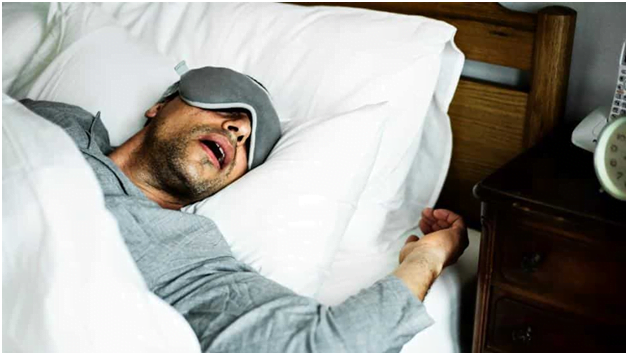What to Know About Sleep Apnea and How a Qualified Dentist Can Help
Sleep apnea doesn’t just cause discomfort for you and your partner; it can also pose some serious health issues like diabetes and high blood pressure. Finding expert dentistry in Kitchener Waterloo to treat you can be a great way to ease or even cure the problem.

Sleep apnea is a severe disorder that happens when your breathing is interfered with during sleep. If it goes untreated, you may stop breathing several times as you sleep. Unfortunately, this means that your brain, as well as other body parts, may not get adequate oxygen supply. In this article, we will look at everything you need to know about sleep apnea and what to do to ease the problem.
What is sleep, apnea?
It is a common, yet severe sleep disorder that makes breathing shallow, or stop entirely during sleep. Sometimes, the breathing pause may take about 10 seconds or more and may happen about 30 or more times in one hour. The involuntary pause can arise due to an obstructed airway (obstructive sleep apnea – OSA) or a signaling issue in the brain (central sleep apnea – CSA). The person involuntarily stops breathing continuously throughout sleep. Once the breathing signal is received, or the airway opens, the person may take a deep breath, snort or fully awaken with a choking, smothering, or gasping sensation. When left untreated, sleep apnea can cause health issues like depression, heart disease, and diabetes. It can also make one drowsy, potentially rising the risk of accidents while working or driving.
As mentioned earlier, the condition is common and affects about 30 million people in the US. It is more prevalent among men, with about 14% males and 5% of females having the condition.
What causes sleep apnea?
Who is at risk?
Men are at high risk of developing sleep apnea. However, some other conditions raise the chances of someone getting the disorder. These include things like:
- Being overweight
- Being above 40 years
- Having a large neck size
- Family history
- Stroke
- Using narcotic pain medications
- Heart disorders
- Sinus, allergies, or deviated septum that causes nasal obstruction
- Use of sedatives, alcohol or tranquilizers
- Having a large tongue, large tonsils or a small jaw bone
What you can do about sleep apnea
According to some findings, about 1:5 adults have mild symptoms of OSA, while 1:15 have moderate-severe symptoms. Besides the number of those suffering from this disorder being high, only about 20% have been diagnosed and treated. This is why you need to find top dentistry in Kitchener Waterloo to rule out other problems. Your dentist will analyze your situation and condition and issue a customized treatment with normalizing your breathing patterns and also improving your living conditions.
Signs and symptoms of sleep apnea
The symptoms and signs of OSA and CSA intertwine, making it hard to establish the kind that you have. The most common signs and symptoms of both these apneas include:
- Loud snoring
- Morning headache
- Gasping for air during sleep
- Episodes of stopped breathing
- Excessive daytime sleepiness
- Difficulty staying asleep
- Irritability
- Trouble paying attention while awake
- Waking up with a dry mouth
Treatment for sleep apnea
As mentioned earlier, treatment varies depending on every situation. Your dentist will pick on that matches your needs. Examples of sleep apnea treatments include continuous positive airway pressure (CPAP) therapy, surgery, and mandibular repositioning device (MRD). However, you can also integrate some lifestyle changes into your daily habits to ease sleep apnea. A few things to do include; sleeping on the sides, losing weight, stopping alcohol, and quitting smoking cigarettes.
Complications associated with sleep apnea
Sleep apnea, like other sleep disorders, has been linked to a range of complications. These include:
- Glaucoma
- Stroke
- Motor vehicle accidents
- Memory issues
- Mood changes
- Metabolic syndrome
- Impaired cognition and difficulty focusing
- Hypertension
- Headaches
- Increased mortality risk
- Decreased life quality
- Chronic troubles
- Dry mouth, and sore throat
Finding the right doctor
Your primary caregiver may not be well informed about everything you need to take care of your sleep apnea. That’s why you want a sleep specialist with the right insights and skills to help you stay on top of your disorder. Keep in mind that a specialist completes extensive training and is an expert sleep in apnea care. He or she handles numerous cases and has the right experience to handle vast sleep apnea cases.
Conclusion
Sleep apnea is a common sleep disorder, but this doesn’t mean it shouldn’t be taken seriously. Untreated sleep apnea posses serious health risks and can also leave you with serious complications. That’s why you should get help as soon as you notice (or you are told) about these symptoms.